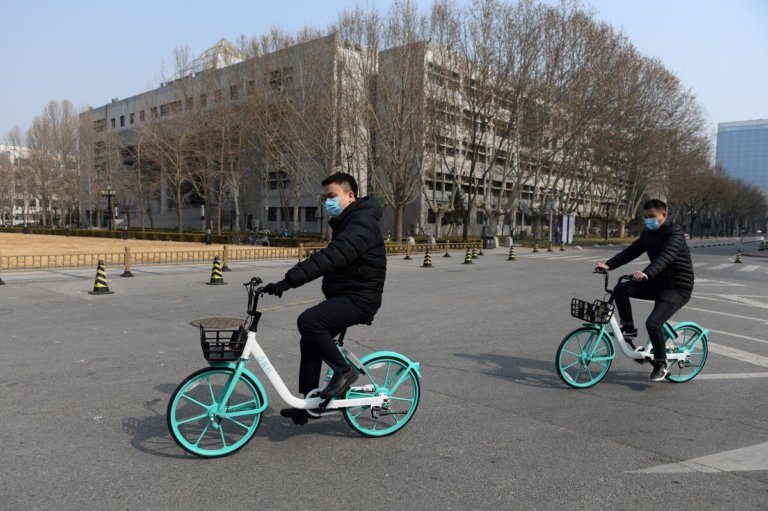
According to the latest Times Higher Education Asia University Rankings 2020, the top 10 best universities in Asia can be found in five countries.
China is home to the top two universities, followed by Singapore, Hong Kong, Japan, and South Korea.
Though their borders are still largely closed to international students, restrictions may ease up in the near future thanks to bilateral travel bubbles.
Here, we look into the latest developments in the top five countries so you may consider the best universities in Asia in your study abroad plan.
China
As June comes, let's enjoy the beautiful summer scenery of Tsinghua. #TsinghuaCampus pic.twitter.com/Av1NjU9my4
— Tsinghua University (@Tsinghua_Uni) June 8, 2020
Tsinghua University is ranked at the top of this table, followed by Peking University. University of Science and Technology in China closes off the top 10.
According to data from the U.S. National Science Foundation, China also leads the way as the world’s top research publisher in science and engineering. It took the top spot from the US this year, making up a total of 20.67% (422,808) of all published research in the area.
China is slowly starting to reopen universities in Hubei, where COVID-19 originated. Beginning June 8, some universities in Beijing and Hubei are welcoming batches of final year students back on campus.
In Beijing, only institutions that have passed epidemic prevention drills are allowed to reopen campus. Health check measures and requirements are also in place.
At the same time, border restrictions are still enforced so international students may not fly in yet.
Singapore

Students record the partial solar eclipse through a telescope at a sports field at the National University of Singapore in Singapore on March 9, 2016. Source: Roslan Rahman/AFP
The National University of Singapore comes in at third place, while Nanyang Technological University takes the sixth spot.
In terms of COVID-19, the city-state was among the hardest hit in Asia. Its circuit breaker, however, is being lifted in three phases right now. Children returned to school earlier this month, too.
Since most publicly-funded universities are on summer break, they will only open in August or September. Even then, classes are expected to remain online and attendance staggered. For example, NUS will enforce a zoning policy when the term starts on Aug. 10; only half of the student body will be allowed on campus at a time.
Singapore is in talks with countries such as Australia, New Zealand, Canada, and South Korea to establish travel exemptions for its citizens, and vice versa.
Both Singapore and South Korea have agreed to set up “fast lanes” with China to allow bilateral travel as early as June.
Hong Kong
The sweeping sea view at #HKUST can make you feel infinite. Just as much as she likes our natural surroundings, Subin from South Korea enjoys embracing the immense opportunities the University offers. Live out your dreams at the world’s top #YoungUni: https://t.co/FOmAfUYfeV pic.twitter.com/hIm1GJSDMx
— HKUST Undergraduate Admissions (@hkustadmissions) April 15, 2020
The institutional autonomy and rich research culture in Hong Kong have made it a rising star in Asia’s education scene. It has the most number of institutions in this top 10: University of Hong Kong (fourth), Hong Kong University of Science and Technology (fifth), and Chinese University of Hong Kong (eighth).
Hong Kong universities were just starting to recover from the protests when COVID-19 struck.
Having successfully curbed COVID-19, it is anticipated to bounce back with the Pearl River Delta travel bubble, which will include Hong Kong, Macau, and mainland Chinese cities. Thanks to a special travel concession, Chinese students can enter Hong Kong without quarantine.
Japan

A man wearing a Spiderman costume jumps across Shibuya crossing in Tokyo on June 8. Source: Charly Triballeau/AFP
The University of Tokyo is ranked seventh. Coincidentally, the Tokyo alert may be lifted this week as the city reported only 18 cases as of June 10.
Japan is only beginning to reopen, having lifted the state of emergency in mid-May. Currently, citizens of over 100 countries are still barred.
Come summer, its travel arrangements with Vietnam, Thailand, Australia, and New Zealand should allow up to 250 travellers a day. Business people and researchers will be the first allowed into the country. Students are typically next in line, pending official word from Tokyo.
South Korea

students walking in front of the library main building of Seoul National University in 2017. Source: Jung Yeon-Je/AFP
South Korea has had a unique experience. It resumed in-person classes in May, but quickly closed as cases began to spike again. So for now, the country is understandably cautious.
Travel restrictions and quarantine requirements are still in place. Visitors from China, Italy and Iran continue to undergo strict border checks with tracking systems.
According to a survey by the Korean Association of Private University Presidents, three-quarters of public and private institutions will extend distance learning until the end of the current semester.
University students are anticipated to start the academic year in September. Hybrid models may be favoured to start.
Liked this? Then you’ll love…
Asia borders: Which countries have reopened to international students?
Alternative countries to study abroad this fall if you’re affected by US travel rules







